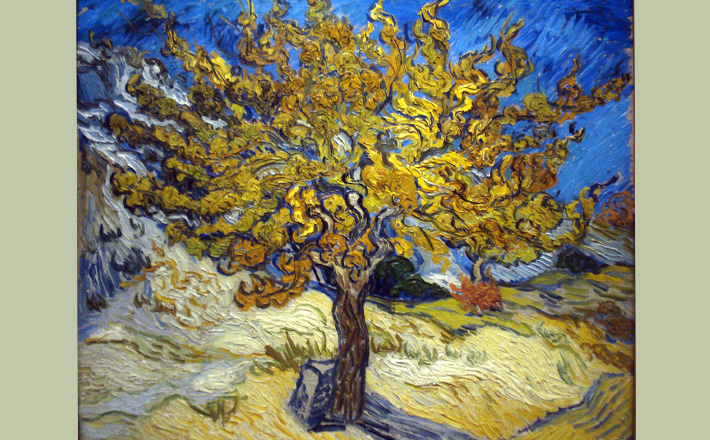Commentary on Lamentations 1:1-6
We live in a world that is uncomfortable with feelings of deep sorrow, regardless of the loss.1
In moments of our deepest pain when we most need consolation, people are likely to tell us to just get on with it. Perhaps you’ve heard some of these meaningless phases or even said them to someone yourself. “God won’t give you more than you can handle.” “Everything happens for a reason.” “Get over it!” “Don’t feel that way!” Though intended to comfort and encourage, words such as these add to rather than diminish the pain.
Biblical writers understood the power of fully expressing our feelings before God. Psalms, Job, and Lamentations are examples of the healing power of honesty with God, and by implication, with oneself. The writers of the Psalms regularly utilize songs and prayers of lament to work though whatever is troubling them. In the book of Job, his ability to lament, misunderstood as it is by his friends, is essential to his heart rendering journey as he deals with the reversals in his life. In Lamentations, a community laments a time of tremendous national loss.
The book of Lamentations opens with the cry of the city Zion, personified in 1:2, as a weeping widow with no one to comfort her. She longs for the din of the festivals. Deserted and betrayed by friends and lovers, she weeps alone. Roads and gateways mourn the absence of Zion’s festival attendants. There is no rest for the weary city. The woman’s wailing is a deep anguished cry that will not be silenced. Her pain is simply too great to be ignored. Like a child whose incessant questioning finally solicits a response, the woman and the nation together refuse to silence their pain.
Though in other books biblical writers convey in detail the severity of the transgressions that precipitated the nation’s loss to Babylon, in Lamentations the wails of the distraught city are focused on the nation’s suffering, not on its transgressions. The silence of God and the failure to name particular transgressions makes room for Israel to fully vent the bitterness of her losses.
The losses were great, indeed. Young women and men were in exile. There was no king, no nation, no temple. The pain could not have been greater nor the circumstances more desperate. It was impossible to deny or disregard the community’s agony. Its agony was boundless, extending all the way to Babylon. Babylon was the victor, the home of Israel’s enemy oppressors where the exiles now lived. It was too painful even to speak, or write its name.
Attributed to the “bridge” prophet, Jeremiah (who lived before, during and after the siege), each of the five chapters in Lamentations utilizes acrostic format to give voice to the horrors of war. It is as though in each, the writer is saying, “From beginning to end, my pain is beyond measure.” Not unlike the hurt experienced by Jesus on the cross, this hurt leaves nothing untouched.
The writer wondered why God would permit the beloved city/nation to suffer such a devastating loss. While the reader knows that nation of Babylon is the implied offender, this offender lies silently in the background. God is the sole offender and is so named in Lamentations 1:5. The loss is so great, no one but God could be responsible. This was no ordinary loss. It was the death of a nation, the death of a people, and the death of faith in God … If Israel did not exist, who would take a stand for worship of … [one] God? Israel’s loss would be a loss for all the earth. So much is at stake, her voice must be heard.
The book itself is an intervention, one that simultaneously stops the nation in its tracks and compels it to move forward. The intervention insists Israel hope in God, even if that hope is only a faint glimmer. Even if hope will have to wait until God’s undisclosed timing.
Although the poems in Lamentations provide no resolution, they do provide a literary mechanism for expressing the emotions associated with it. Sometimes just to be heard by another is sufficient, for in the process one hears oneself. Sometimes that is enough to begin to heal the woundedness and release the giftedness that lies beneath the hurt. Sometimes that is enough to energize and empower an individual, a community, a nation to do the work that needs to be done. The astute reader notices that this is one of those times, not only for Israel, but for our nation and the world today.
The lessons of lament have much to teach the world about finding healing and restoration in times of crisis or after tremendous loss. Lament is part of the healing process. Failure to lament makes it difficult to move forward when we encounter life at its worst. Lament releases the energy that is bound up in grief and regret. Ever cognizant that life will never be the same, lament makes room for life to begin again. Lament did its work, for under Ezra and Nehemiah and in 1948, the nation did begin again.
These verses in Lamentations are a reminder that while most nations’ stories are told to portray its victories, Israel’s genius lay in its ability to struggle and come to terms with, to recall and tell its story in terms of difficult realities. This creative capacity, to see clearly not only the best of times but also the worst of times, laid the foundation for Judaism and Christianity. As a consequence of struggling with its painful realities, in a stroke of theological genius, Israel turned its memories of crisis, national reflection, and mourning into a sacred text that spoke words of comfort, conviction, correction, challenge, and change to its own community in its own time. It continues to speak words of hope to communities around the world for our day and for generations to come.
Notes:
1 Portions of this article are adapted from Alphonetta Wines, “Thinking the Unthinkable: God as Enemy — An Image of God in the Book of Job and Other Books of the Hebrew Bible” (PhD diss., Texas Christian University, 2011).


October 2, 2016